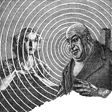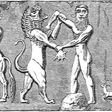
The Illuminati: Conspiracy Theories
In this episode, Megan and Frank continue their discussion of the Illuminati. Here, the focus is on the afterlife of the Bavarian Order. How did conspiracy theories involving the Illuminati arise? Why is so much pop culture full of Illuminati imagery? And are there any good reasons to believe in such conspiracy theories? Thinkers discussed include: Dostoyevsky, Kierkegaard, and Maarten Boudry.
-----------------------
Hosts' Websites:
Email: philosophyonthefringes@gmail.com
-----------------------
Bibliography:
Michael Taylor- Illuminati in the US - American History Hit | Acast
The Secret School of Wisdom: The Authentic Rituals and Doctrines of the Illuminati (Primary source documents)
CATHOLIC ENCYCLOPEDIA: Illuminati
Kierkegaard - The Crowd is Untruth
The Grand Inquisitor, by Feodor Dostoevsky
Barruel - Memoirs Illustrating The History Of Jacobinism
From Thomas Jefferson to Bishop James Madison, 31 January 1800
Did an Illuminati Conspiracy Theory Help Elect Thomas Jefferson? - POLITICO
Nesta Webster - World revolution; the plot against civilization
Zionism versus Bolshevism - Churchill
Boudry, Maarten - Why We Should Be Suspicious of Conspiracy Theories. A Novel Demarcation Problem
[Reddit] why do the large shadow organizations leave clues that could lead to their downfall?
Megan Fritts & Frank Cabrera, Fake News and Epistemic Vice: Combating a Uniquely Noxious Market
Are Republicans and Conservatives More Likely to Believe Conspiracy Theories? - PMC
The psychological and political correlates of conspiracy theory beliefs
Is Conspiracy Theorising Irrational? - Neil Levy
Predictors of belief in conspiracy theory
Conspiracy theory and cognitive style: a worldview
-----------------------
Cover Artwork by Logan Fritts
-------------------------
Music from #Uppbeat (free for Creators!):
https://uppbeat.io/t/simon-folwar/neon-signs
License code: ZILRIT8XNZAA6LYZ



















